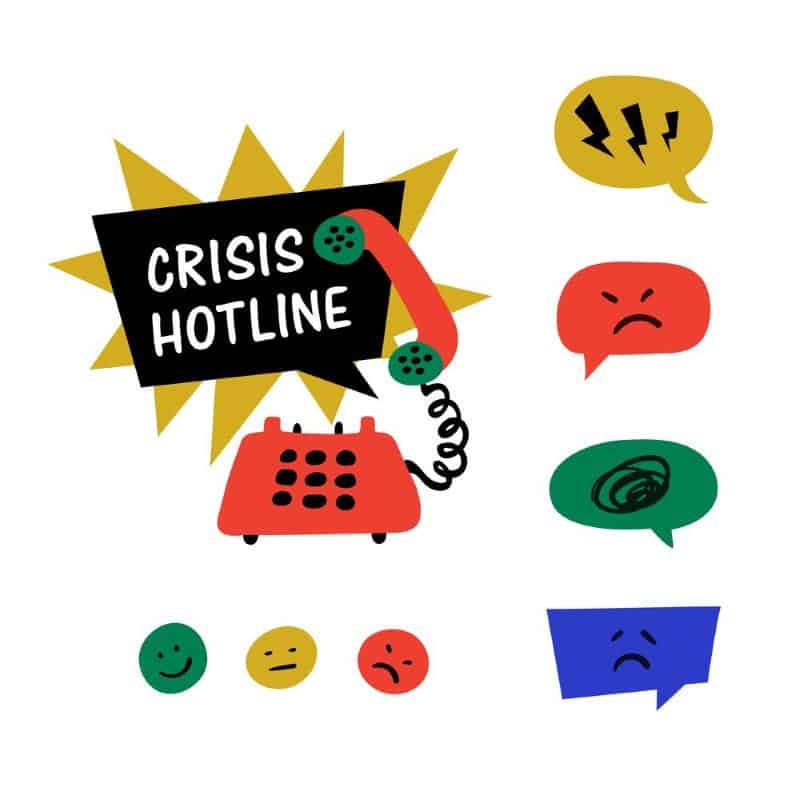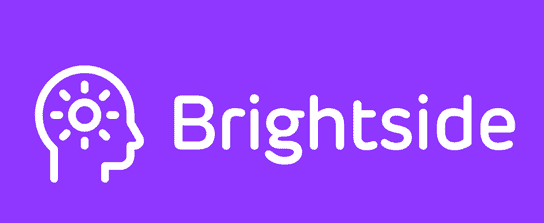Anxiety and mental health issues can be challenging to manage alone, so it’s crucial to have access to a reliable source of support. Fortunately, anxiety hotlines are available 24/7, offering advice in a safe and confidential environment.
This article will discuss the many benefits of using an anxiety hotline and what you can discuss with the online therapist.

What is Anxiety?
Anxiety is a normal reaction to stress that everyone experiences at some point. It can range from mild to severe and manifest itself in different ways. This can include physical symptoms like difficulty breathing or sweating and emotional responses like fear, worry, or panic attacks. When anxiety interferes with daily activities, it may be time to seek help.
Anxiety can manifest itself in various ways and take on many different forms. Some of the most common conditions include generalized anxiety disorder (GAD), panic disorder, social anxiety disorder, obsessive-compulsive disorder (OCD), post-traumatic stress disorder (PTSD), and specific common phobias.
What are 24/7 Anxiety Hotlines?
An anxiety hotline is a confidential and anonymous phone service providing free professional advice to people with mental health issues. Hotline specialists are trained in psychology and crisis management. This training allows them to offer personalized recommendations tailored to the caller’s needs.
The hotline services available can vary between different organizations, but generally, they offer support, advice, and referrals to other resources. Some anxiety and depression hotlines provide counseling or therapy sessions over the phone.
Benefits of Using a 24/7 Anxiety Hotline
Let’s look at how an anxiety hotline can help deal with anxiety.
Having someone available to talk any time of day or night.
24/7 anxiety hotlines provide an invaluable service by offering support and advice when needed, without the constraints of office hours or an appointment.
Receiving professional advice from mental health specialists.
Hotline specialists are trained to understand and address the complex emotions associated with anxiety disorders, depression, and other mental health conditions.
Remaining anonymous throughout the process.
Knowing that conversations remain confidential can be a tremendous relief for those seeking help with mental health disorders. They don’t have to worry about anyone finding out about their struggles if they don’t want them to.
Accessibility.
Just like online therapy, anxiety hotlines are also incredibly accessible.
People from all walks of life can access these services via phone, regardless of disability or location. This is especially important when many people are self-isolating at home and lack easy access to physical resources such as therapy groups or in-person counseling sessions.
Cost–effectiveness.
Another great benefit is that using a 24/7 anxiety hotline is often free or low-cost compared to other mental health services. Your current insurance scheme may also cover the cost of using an anxiety hotline or telephone counseling service.
Looking for a specialist? Match with a top-rated therapist.
What Can You Talk About When Calling an Anxiety Hotline?
When calling an anxiety hotline, you can discuss mental health and emotional well-being.
- Stress: Feeling overwhelmed with life stressors and feeling like you’re not doing enough to cope
- Depression: Experiencing low mood, loss of interest in activities, fatigue, and difficulty concentrating
- Panic Attacks: Short periods of intense fear or discomfort accompanied by physical symptoms such as chest pain, sweating, shaking or difficulty breathing
- Suicidal Thoughts: Struggling with thoughts of wanting to end your life due to feeling hopeless or helpless
- Relationship Difficulties: Experiencing conflict in relationships due to miscommunication or struggles within the relationship itself
- Grief & Loss: Struggling emotionally after losing a loved one or dealing with separation anxiety
- Trauma/ Abuse History: Working through past experiences that have affected your mental wellness to move forward positively
- Self-Esteem Issues & Body Image Concerns: Feelings of insecurity about oneself leading to diminished self-worth and comparing oneself negatively against others
- Substance Abuse Problems: Developing an addiction-related problem due to using drugs or alcohol excessively; struggling with withdrawal symptoms when trying to quit
- Financial Worries & Difficulties: Feeling anxious or overwhelmed due to financial issues.
No matter the issue, talking to a specialist on an anxiety hotline can help provide clarity and strategies for coping with emotional difficulties. Specialists are also trained to provide referrals if needed, such as information about local support groups or therapy services.
The specialist will take the time to listen to your concerns and advise how best to cope with them.

How to Make the Most Out of Your Conversations With Anxiety Hotlines
To ensure that conversations with hotline specialists are effective, here are a few tips to keep in mind:
- Be open and honest. When talking to a hotline specialist, it’s essential to be as open and honest about your feelings and experiences as possible for them to provide the best advice.
- Listen to their advice. Hotline specialists are trained to provide support and guidance. It’s essential to take the time to listen and consider what they have to say when offering advice or direction.
- Ask questions. If you need help understanding something the hotline specialist has said or want to know more about a particular topic, then feel free to ask questions.
- Be patient. Hotline specialists often have several calls lined up. It may take them time to get through each one before they can get to yours, so it’s important to remain patient and understanding when speaking with them.
- Follow up. If the hotline specialist suggests you find mental health services from another resource, follow through on this advice as soon as possible to get the support you need.
Popular Anxiety Hotlines in the US
Reaching out for help can be a challenging but necessary step toward improving your mental health and well-being. Anxiety hotlines are an excellent resource for support and advice in times of need. Here are the numbers you can call if you are experiencing a panic attack or anxiety:
- 988 Suicide Hotline (988) – Formerly known as National Suicide Prevention Lifeline, this hotline provides 24/7 free and confidential emotional support to those struggling with mental health concerns, such as suicidal thoughts. It connects callers to a network of crisis centers across the United States.
- Crisis Support Services (1-800-273-8255): This service allows people in crisis to text for help instead of making a phone call. They provide 24/7 access to trained counselors who offer information and resources about mental health issues, bullying, and more.
- Substance Abuse & Mental Health Services Administration (SAMHSA) Hotline (1-800-662-4357): This helpline offers referrals and other assistance for individuals seeking substance abuse or addiction treatment. It also supports individuals dealing with anxiety, depression, eating disorders, bipolar disorder, schizophrenia, etc.
- Veterans Crisis Line (Dial 1-800-273-8255 then Press 1): This line is dedicated specifically towards veterans experiencing distress due to military experiences or struggles they may be going through after returning home from deployment. Trained staff offers immediate assistance through telephone calls or chats online.
- Disaster Distress Helpline (1-800-985-5990): The Disaster Distress Helpline provides free counseling services during natural disasters or any other kind of emergency situation occurring in the US at any time of day or night via text message, phone call, or online chat.
- National Alliance on Mental Illness Helpline (1-800-950-6264): This helpline provides information and support for individuals with mental illness and their families. It also provides referrals to local programs and resources that can help people in need.
How can a 24-hour anxiety hotline help you?
Using an anxiety hotline can be a great way to access reliable sources of advice and support. Hotlines provide 24/7 access to knowledgeable specialists trained in mental health issues who offer confidential and judgment-free conversations.
If you feel more comfortable being able actually to see the person you’re talking to, you may find Talkspace’s free online therapy trial is also an excellent option for you.
This article was fact-checked by Eric Van Buskirk
- Escalaphobia: Conquering Moving Mountains, One Step at a Time - December 19, 2024
- How Psychologists Can Empower Communities - March 25, 2024
- The Potential of Medical Cannabis for Neurological Conditions - February 26, 2024


